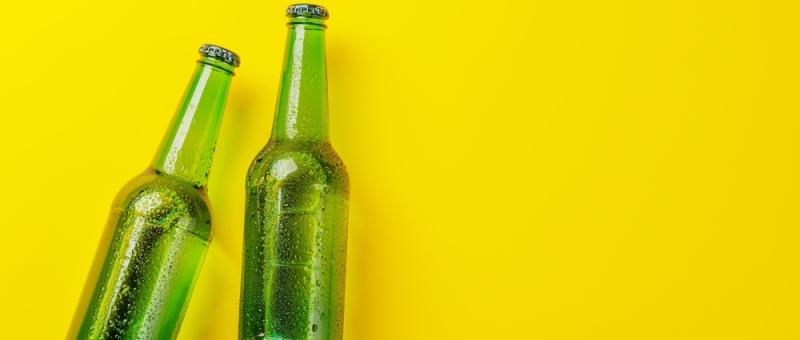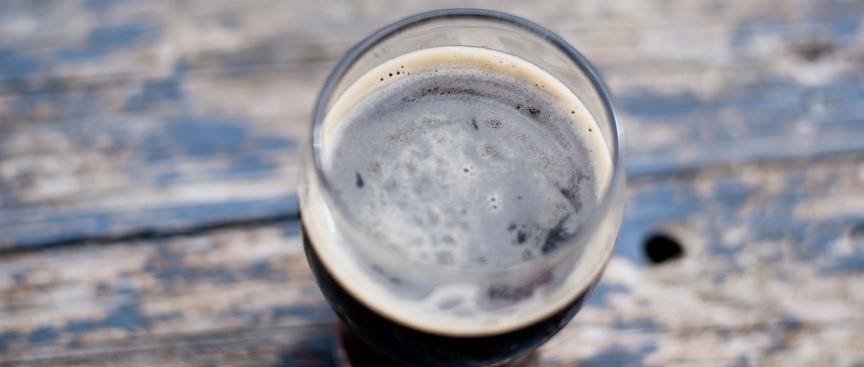
What are the dangers of drinking in hot weather?
Peer reviewed by Dr Krishna Vakharia, MRCGPLast updated by Lawrence HigginsLast updated 10 Jun 2025
Meets Patient’s editorial guidelines
- DownloadDownload
- Share
- Language
- Discussion
Whether it's after work drinks, post-exam celebrations, or weekends spent in pub gardens, drinking in the sun can be a big part of summer culture. If this activity is part of your summer plans, how can you limit the dangers that accompany the sun-alcohol cocktail? And if you have a teenager, how can you keep them safe?
In this article:
Continue reading below
Does drinking in the sun make you drunker?
It's a common myth that you feel the effects of alcohol more when drinking in the sun. If you've ever felt more affected by a drink enjoyed in the sunshine, it's because the other, undesired symptom of alcohol - dehydration - affects you quicker.
Dr Deborah Lee of Dr Fox Online Pharmacy explains that dehydration can have serious consequences for your health. Even if you are just 1-2% dehydrated this can make you feel sluggish and tired.
Other signs of dehydration include:
Muscle cramps.
Dry mouth/dry lips.
Peeling skin.
Dehydration is also a major cause of hangover symptoms.
Why does alcohol dehydrate you?
Drinking alcohol causes you to pee more often. This is because alcohol is a diuretic, which means it causes your body to lose more water through pee. It does this by interfering with the hormone called vasopressin.
Why does the sun dehydrate you?
The heat from the sun can cause you to sweat more. The quantity of sweat produced can be as high as a couple of litres, depending on the heat and your activity levels. This can cause your body to lose fluids and lead to dehydration.
Overheating while drinking in the sun
"Sitting in the sun means you are more likely to overheat, which has the potential to become heat exhaustion and ultimately, heatstroke," explains Dr Lee.
Each year in England and Wales, there are nearly 800 excess deaths associated with heat, according to the London School of Hygiene and Tropical Medicine.
"Being too hot puts strain on your heart too, increasing the risk of strokes and heart attacks."
Warning signs of heat exhaustion - call for an emergency ambulance, 999 in the UK, if you have any of the symptoms below
Symptoms of heat exhaustion can creep up on you or come on quite suddenly. So, it's essential you are able to recognise them:
Headaches.
Dizziness and feeling light-headed - a sign of low blood pressure.
Muscle cramps.
Nausea or vomiting.
Loss of appetite.
Feeling very thirsty.
Dry mouth, lips and tongue.
Excessive sweating - or not sweating enough, which occurs in people with heat intolerance.
Clammy skin.
Feeling lethargic.
Rapid breathing.
Racing pulse.
Raised body temperature - this might be 38°C or above.
Continue reading below
Skin damage from drinking in the sun
It's possible you will ignore the dangers of the sun's UV rays on your skin if you are tipsy or drunk. But, protecting your skin from the sun is important, both by wearing at least SPF 50 and seeking shade.
Excess sunlight exposure damages skin by speeding up the changes of ageing, causing loss of elasticity, wrinkling, and sagging.
There are more serious risks too. Lots of sunlight exposure is strongly linked to the development of both melanoma and non-melanoma skin cancers.
Of course, the safest option is steering clear of alcohol on hot days, but the reality is that drinking in the sun is on many people's summer agendas.
Dr Lee says: "You need to make sure you drink plenty of water. Drink one large glass of water for each alcoholic drink and keep a refillable water bottle handy if you are out and about."
Other tips for drinking safely in the sun include:
Dilute your alcohol - with soda water.
Go at a steady pace - spread out your alcoholic drinks and drink non-alcoholic drinks in between.
Avoid mixing your drinks - stick to white or clear drinks, such as white wine - and if you are having spirits - gin, or vodka.
Keep eating - food helps to delay the absorption of alcohol into the bloodstream and protects the stomach lining.
Seek out the shade - this reduces your chances of heat exhaustion.
Additionally, when drinking in the sun, you should continue to follow the normal sun safety steps:
Wearing cool, loose-fitting clothes made of natural, not synthetic, fibres.
Wearing a wide-brimmed hat to shield your face and shoulders from the sun.
Using plenty of sun cream with SPF 30 - 50 if you are more vulnerable - and reapplying throughout the day.
What to do if you feel unwell after drinking in the sun:
"If you start to feel the effects of the alcohol and the heat, go indoors. Find a cool place to lie down and elevate your feet slightly. Stop drinking alcohol and drink a pint of water. If you don't feel better within 20 minutes or so, ask for help. Call your doctor or in the UK, call NHS 111 for advice if you or someone else suspects signs of heatstroke," says Dr Lee.
One easy way to cool yourself down is by placing a bowl of cold water in front of a fan and angling the cold breeze towards you.
Warning signs of heat exhaustion - call for an emergency ambulance, 999 in the UK, if you have any of the symptoms below
Symptoms of heat exhaustion can creep up on you or come on quite suddenly. So, it's essential you are able to recognise them:
Headaches.
Dizziness and feeling light-headed - a sign of low blood pressure.
Muscle cramps.
Nausea or vomiting.
Loss of appetite.
Feeling very thirsty.
Dry mouth, lips and tongue.
Excessive sweating - or not sweating enough, which occurs in people with heat intolerance.
Clammy skin.
Feeling lethargic.
Rapid breathing.
Racing pulse.
Raised body temperature - this might be 38°C or above.
The dangers of teenage drinking
Alcohol and sunshine is a dangerous enough mix for adults, but for the secondary-schoolers and university students swapping revision time for party time, the implications are even more worrisome.
While the UK legal drinking age is 18 years, the reality is that underage drinking remains ingrained in British culture. Despite a steady downward trend in teenage drinking, according to Public Health England, by 17 years of age around 2 out of 3 boys and 1 in 2 girls drink alcohol every week.
There are reasons the government sets a legal age limit. Science tells us that young people are significantly more affected by alcohol, because it can interfere with their development. For example:
Alcohol and developing bodies:
Developing bodies are more vulnerable to long-term alcohol damage - such as heart and liver disease, mouth and throat cancer, and sexual and mental health problems.
Alcohol can disrupt brain development and function.
Teenagers are more likely to develop alcohol dependency - the pleasure centre in their brain develops faster than their decision-making skills.
Teenage drinking and life choices:
Injuries - young people who drink are much more likely to be in an accident while drunk.
Unwanted sexual experiences - one in five girls and one in ten boys aged 14 to 15 go further than they want to in a sexual experience when under the influence2.
Unsafe sex - alcohol is a significant factor for unsafe sex among secondary school and university students3.
Antisocial and criminal behaviour - teenage drinking is associated with getting in trouble with the police, cannabis use, vehicle-related risk behaviours, tobacco smoking, self-harm, and physical inactivity4.
Lower grades and school attendance - it takes longer for alcohol to leave a growing person's system, which can affect performance in lessons. Teenage drinking is also linked to higher exclusion rates5.
Continue reading below
End of exam drinking in the sun
People of all ages need to be especially careful about drinking in the sun. For teenagers and university students, this also marks end of exam celebrations.
If you're a parent, it's difficult to control how your child celebrates with their friends. Still, gentle reminders of the additional dangers of drinking in the sun may have a positive influence that helps to counteract any peer pressure they may be facing during this time.
Should I let my teenager drink alcohol?
Drinkaware UK encourages parents to have the alcohol chat with children celebrating the end of exams or GCSE results. They have useful resources on how to answer tough questions.
How to talk to your teen about alcohol
Choose a good time - when they haven't been drinking and you're both calm.
Ease into the topic - for example, start by talking about a common interest first.
Make it a conversation not a lecture - try to listen as much as you talk and encourage your child to be open about their thoughts and feelings.
Attempt to understand why they want to drink - for example, show you understand that the culture of end of exam celebrations means they could be facing a lot of peer pressure to drink.
Discuss reasons not to drink - this includes the health risks discussed in this article, as well as the effects of teenage drinking on skin, sleep, and weight gain.
Emphasise the dangers of drinking in the sun - from skin damage to heatstroke, teenage drinking in parks and other sunny spots presents risks your child may not be fully aware of.
Keep the conversation going - after your initial chat, touch base with your child from time to time. The period between exams and results is long and filled with sunshine, so keep asking questions and providing advice during this time.
What if my teenager is drinking after exams?
In reality, what your teenager gets up to is often out of your control. If you know or suspect they're drinking to celebrate end of exams, make sure they understand how to make drinking in the sun as safe as possible.
Pass on this advice, and then take these steps to help you monitor and protect your child as much as you can this summer:
Get to know their friends - to help identify and discourage negative influences.
Get friendly with their friends' parents - to share the responsibility of monitoring their summer drinking behaviours.
Talk to them about underlying issues - don't assume drinking after exams is all about celebration. Young people could be finding it hard to let go of exam stress, or there may be other life factors that are causing them to use alcohol as a coping mechanism.
Lay down rules and punishments - remind your teen of the risks of teenage drinking, from their health to the possibility of arrest in public spaces.
Encourage other interests and social activities - there are many other ways to enjoy the summer, from sports to creative hobbies or fun days out.
Don't beat yourself up, and try to be patient with your child. Learning about the risks of teenage drinking, alcohol in the sun, as well as how to navigate end of exam time celebrations and peer pressure can be a useful life lesson for many young people on their way to adulthood.
Patient picks for Alcohol advice

Healthy living
One in five hospital patients have a problem with alcohol
One in 10 people admitted to an NHS hospital are addicted to alcohol, new research finds.
by Ashwin Bhandari

Healthy living
Hard seltzer: how healthy is it?
Hard seltzer is the popular summer beverage that's taken the US and now Britain by storm. We burst the bubble on many of the health myths surrounding this fizzy alcoholic drink.
by Amberley Davis
Continue reading below
Article history
The information on this page is peer reviewed by qualified clinicians.
Next review due: 13 Jun 2028
10 Jun 2025 | Latest version
6 Jun 2023 | Originally published
Authored by:
Amberley Davis

Ask, share, connect.
Browse discussions, ask questions, and share experiences across hundreds of health topics.

Feeling unwell?
Assess your symptoms online for free
Sign up to the Patient newsletter
Your weekly dose of clear, trustworthy health advice - written to help you feel informed, confident and in control.
By subscribing you accept our Privacy Policy. You can unsubscribe at any time. We never sell your data.